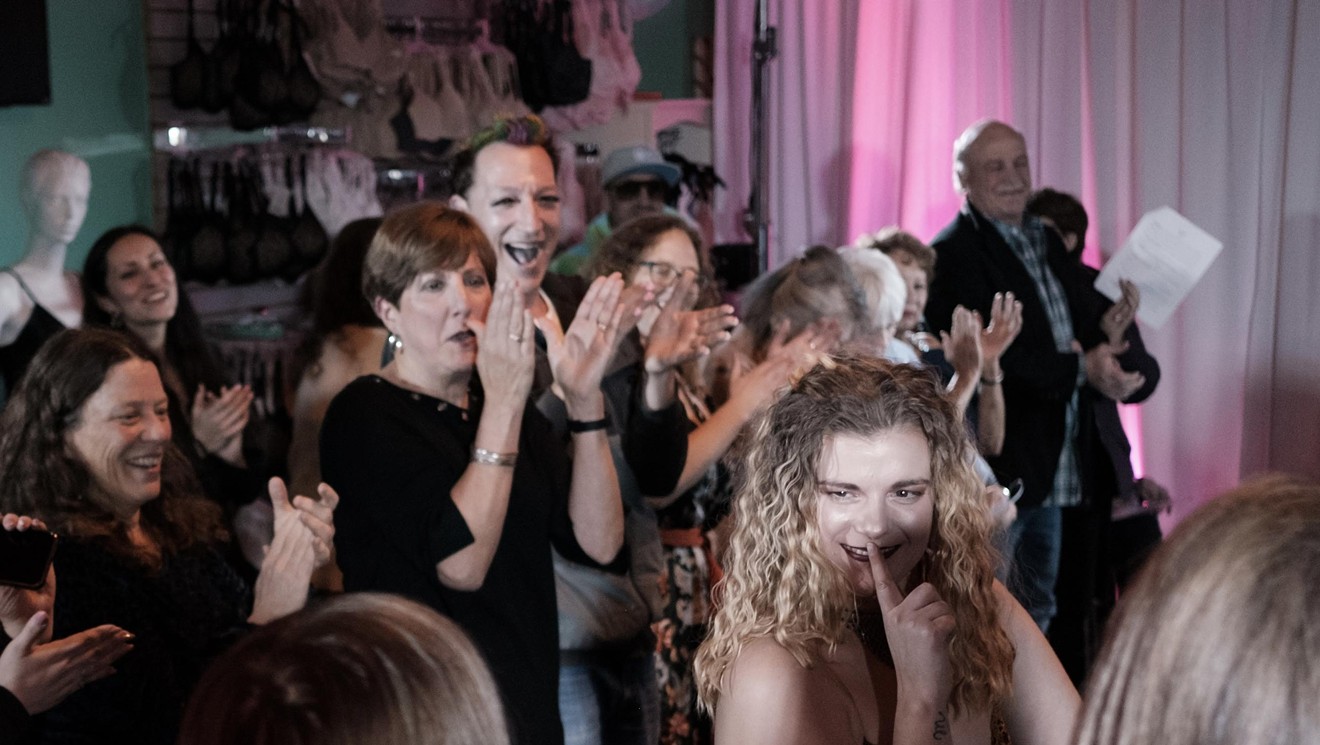Guest Commentary: Sustainability From the Inside Out
By Lawrence Messerman, Ph.D
It is a question, practically of relationship. We must get back into relation, vivid and nourishing relation to the cosmos and the universe. . . . For the truth is, we are perishing for lack of fulfillment of our greater needs, we are cut off from the great sources of our inward nourishment and renewal, sources which flow eternally in the universe. Vitally, the human race is dying. It is like a great uprooted tree, with its roots in the air. We must plant ourselves again in the universe.
-D.H. Lawrence, writer
…shamans used to work by harmonizing the elements and bringing them back into balance wherever they went. This is a spiritual, archetypal form of environmentalism that we don't understand anymore because we tend to see environmentalism as just an external affair. Of course we then end up relying on the same external, scientific technologies to restore the environment that destabilized it and got us into this mess in the first place—which is totally hopeless. We have forgotten the secret that there are inner environmental practices, too.
Peter Kingsley, philosopher
This term sustainability from my perspective is…a disconnected term, taken simply out of context, used for whatever purpose any person wants, without a fundamental underlying foundation for its meaning that is connected in context with everything else with which we have to live…
-Larry Merculief, Aleut elder
I applaud those who look for ways to conserve energy, minimize CO2 and other forms of pollution, or seek to protect wild habitat. And I believe a great deal more can be done. Not just additional environmental policies, but a fundamental approach that begins with the understanding that our outer environmental challenges are not simply isolated phenomena, but a reflection of a whole way of life that is out of balance. What is unsustainable is thus felt socially, politically, economically and even psychologically.
Before the Europeans arrived on this continent, sustainability was integral to how native people lived. Every tribe had rituals to reaffirm deep connections with the natural world. From an indigenous perspective—which was once shared by the Europeans themselves—humans are part of a great family of beings that includes the plants, the animals, and all of nature that surrounds them. Even so, these traditions consider humans no better than the other beings that form creation. This awareness leads to humility and an on-going sense of gratitude for the gifts provided by the rest of the living family.
Lacking sharp teeth, fur, claws, or wings, human people have one attribute that helps them to survive: a clever mind. Whereas modernism celebrates the human mind as the pinnacle of creation, many of the ancient stories warn of its weaknesses. In North American native lore, the pitfalls of the mind are often represented in accounts of Coyote: the clever trickster who is forever getting himself into trouble. The earlier European cultures echoed this theme, albeit not in ‘coyote clothing’: The stories of Icarus and Narcissus told by the Greeks, and references to the Flood (actually common to many ancient people) and the Tower of Babel from the Bible. Perhaps most dramatic of all is the Book of Genesis in the Old Testament, which has Adam and Eve being cast out of the Garden of Eden. Adam and Eve eat the forbidden fruit from the Tree of Knowledge and thus lose the state of grace that comes from living in harmony with nature. One could argue that European peoples have been wandering at odds with the wilderness ever since.
By some estimates, within a century of Europeans arriving in the Americas, about 90% of the native population had perished. A number died of disease, but many were victims of violence. Over the next five centuries, most of the traditions that honored the land also died away. Whereas people living in the Americas once felt a deep reverence for the natural world, those who pushed them aside had a completely different perspective: To them, the wildness was to be tamed and its bounty was ordained by God for human consumption. Within a few generations, the great forests were cut down, the vast Prairie was under cultivation, and creatures like the buffalo—which once numbered in the untold millions—were all but extinct.
To some people this is old news and better forgotten. To others, it is a sad, but inevitable consequence of something called “progress.” But echoes of the past continue to haunt us. Our current environmental challenges are very much a product of this same mentality that sees humans as separate from nature. That sense of separation has a high psychological cost. Many spiritual traditions speak of the “hungry ghost”: Those who lack a deeper sense of sustenance and thus fall prey to the kind of addictive behaviors that are so common these days. It’s a kind of death in life syndrome that leads only to more death and destruction.
Whereas the great stories once reinforced our humble place in the web of life, now we are bombarded by messages encouraging us to consume our way to happiness. In the era of the global capitalist marketplace, humility and gratitude seem quaint at best, and literally counter-productive at worst. Even those relative few who do have the wherewithal to buy everything they want can find themselves alienated and isolated. Outwardly, this insatiable appetite for new stuff is bringing ecosystems to the point of breakdown.
Contemplating the inner and outer aspects of our unbalanced way of life as well as the history that brought us to this juncture can seem overwhelming. Indeed, it is tempting to choose denial and simply look away: Perhaps descending more deeply into the virtual worlds of computers, the internet, gaming, etc. or simply re-affirming the naïve faith that somehow science and technology will deliver us from our current predicament. And yet science and technology also begin with the assumption that we are distinct from nature and look to manipulate the world ‘out there’ to fulfill our short-term goals. This is a recipe for more unintended consequences and suffering.
True sustainability will only come from “thinking outside the box”—meaning the bone-encased box that sits atop our necks. The mind’s story is necessarily rooted in a sense of separation. Feeling separate, we imagine that if we can control enough of the world around us, we will achieve comfort. Of course such comfort is only fleeting. It is time to re-affirm a different, more ancient story: that of connection. This is the realm of the heart, and its perspective is at the core of all the great spiritual traditions.
There are many ways to reinforce heart and connection. One step is to seek out the elders that still remain from the traditions that sprang forth from this land and begin to honor them and their particular stories. Contrary to the view of rationalists, these tales are not just colorful myths woven by a people too primitive to know any better; rather, they are themselves a living part of the fabric of life. While plants and animals may nourish the body, these stories are critical food for one’s heart and soul. Hearing them again is an important way to restore vibrancy to both the land and the people.
Spending quiet time in nature can also help deepen one’s sense of connection to the web of life. This means not just using nature as a backdrop for recreation, but slowing down, being present and just listening as all our ancestors once did.
Healing our ‘inner environment’ is an important step towards connection and sustainability. This is especially so when we have inherited dysfunctional patterns like addiction. While individual healing is important, it is even more critical to see how our well-being is rooted in the health of our communities. Although there is some merit to the idea of a “global community,” real community is something that is local: Rooted to a particular place, where people meet face to face, grow food, plan projects together, and support one another in times of difficulty. Real community implies accepting differences and learning to handle conflict in a constructive way so that collaboration is possible.
Bend already has a foundation for creating a more balanced, sustainable way of life. Many local organizations are concerned with environmental quality. Still others want to create a more viable local economy with greater reliance on local foods, and this includes permaculturists, “localvores” and those advocating a Cascadia bio-region. We have outdoorsmen (and women!), survivalists and those who have the skills to live off the land. We have an abundance of healers: therapists, body-workers, and the like to help individuals do their inner work. There are yoga studios, meditation centers, and a range of spiritual offerings. Then there are the arts groups to help people with creative expression. For support with difference and outright conflict, there are folks devoted to non-violent communication and other such techniques. Bend will become truly sustainable as these disparate groups extend their collaboration to create a more vibrant, resilient culture to meet the challenges that may lie ahead.
As without, so within: What’s happening out there in the environment is one aspect of a deeper dis-ease that has been many generations in the making. Creating a truly sustainable way of life will be revolutionary as it calls into question not a particular ideology but our fundamental reliance on the mind and all ideologies to ensure a future for those who follow us. Green technology and better policies may be of some value. But the real gain will come in healing ourselves, our community, and our relationship to nature. As we do so, we will once again experience the grace that comes from living in balance with the great mystery of life.
Lawrence Messerman is a “marakame” or healer and ritual leader in the Huichol tradition of Mexico. He will be offering a free public talk entitled “Healing From the Inside Out” at the Deschutes Public Library, downtown Bend branch on June 19th from 6 pm to 7:30 pm. He can be reached at [email protected].


























